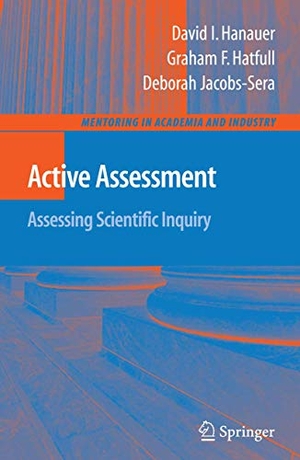Für statistische Zwecke und um bestmögliche Funktionalität zu bieten, speichert diese Website Cookies auf Ihrem Gerät. Das Speichern von Cookies kann in den Browser-Einstellungen deaktiviert werden. Wenn Sie die Website weiter nutzen, stimmen Sie der Verwendung von Cookies zu.
Cookie akzeptieren
David I. Hanauer / Debbie Jacobs-Sera / Graham F. Hatfull
Active Assessment: Assessing Scientific Inquiry
- Springer New York
- 2009
- Taschenbuch
- 156 Seiten
- ISBN 9780387896489
The term scienti?c inquiry as manifest in different educational settings covers a wide range of diverse activities. The differences in types of scienti?c inquiry can be organized along a continuum according to the degree of teacher control and intellectual sophistication involved in each type of inquiry. Types of scienti?c inquiry can also be de?ned according to whether they produce cultural knowledge or personal knowledge. Authentic scienti?c inquiry is de?ned according to ?ve characteristics: devel- ment of personal and cultural knowledge; contextualized scienti?c knowledge; the progression toward high-order problem solving; social interaction for s- enti?c goals; and scienti?c inquiry as a multi-stage and multi-representational process. The de?nition
Mehr
Weniger
zzgl. Versand
in Kürze